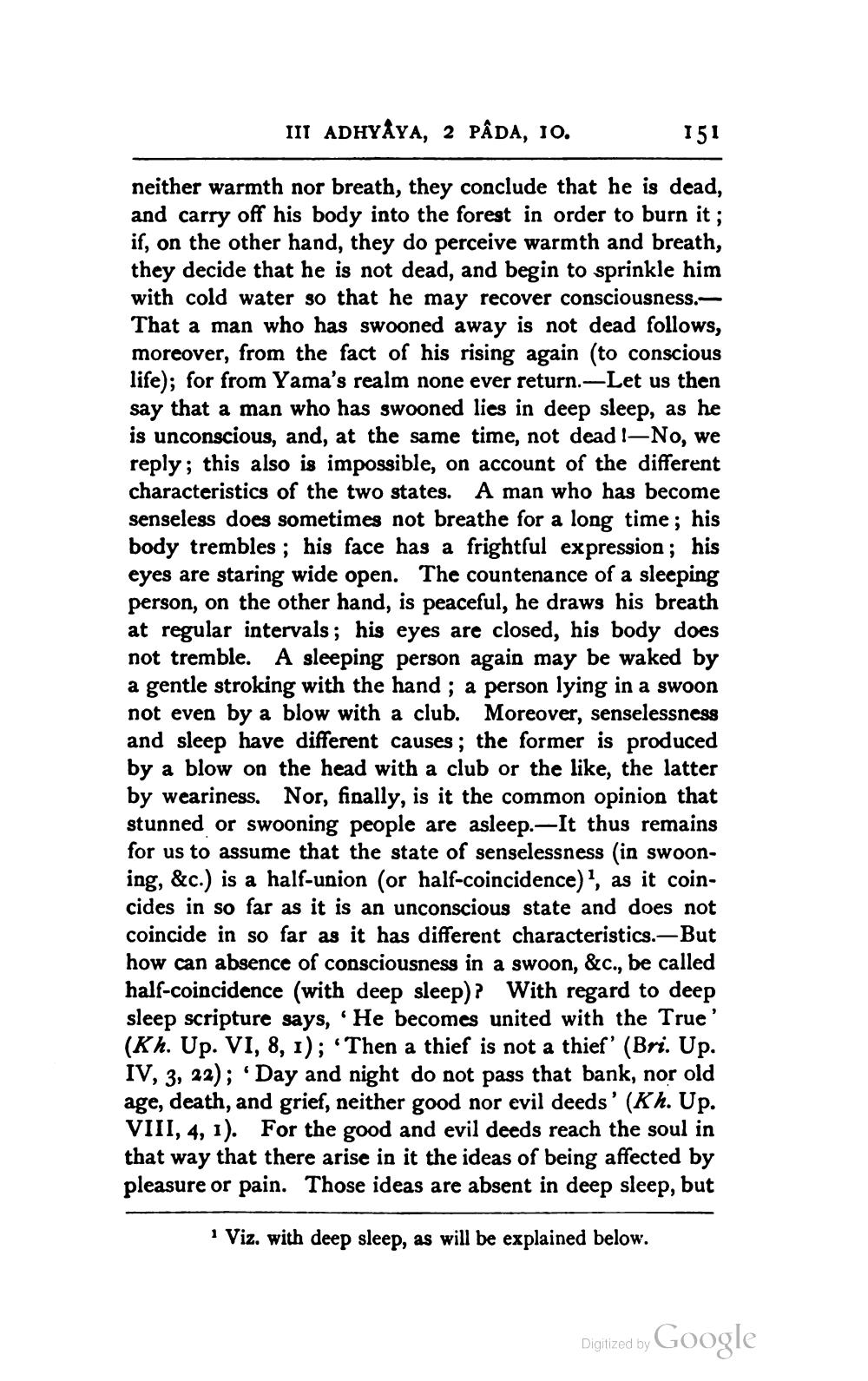________________
III ADHYAYA, 2 PÂDA, 10.
151
neither warmth nor breath, they conclude that he is dead, and carry off his body into the forest in order to burn it; if, on the other hand, they do perceive warmth and breath, they decide that he is not dead, and begin to sprinkle him with cold water so that he may recover consciousness.That a man who has swooned away is not dead follows, moreover, from the fact of his rising again (to conscious life); for from Yama's realm none ever return.-Let us then say that a man who has swooned lies in deep sleep, as he is unconscious, and, at the same time, not dead!—No, we reply; this also is impossible, on account of the different characteristics of the two states. A man who has become senseless does sometimes not breathe for a long time; his body trembles; his face has a frightful expression; his eyes are staring wide open. The countenance of a sleeping person, on the other hand, is peaceful, he draws his breath at regular intervals; his eyes are closed, his body does not tremble. A sleeping person again may be waked by a gentle stroking with the hand; a person lying in a swoon not even by a blow with a club. Moreover, senselessness and sleep have different causes; the former is produced by a blow on the head with a club or the like, the latter by weariness. Nor, finally, is it the common opinion that stunned or swooning people are asleep.-It thus remains for us to assume that the state of senselessness (in swooning, &c.) is a half-union (or half-coincidence)1, as it coincides in so far as it is an unconscious state and does not coincide in so far as it has different characteristics.-But how can absence of consciousness in a swoon, &c., be called half-coincidence (with deep sleep)? With regard to deep sleep scripture says, 'He becomes united with the True' (Kh. Up. VI, 8, 1); 'Then a thief is not a thief' (Bri. Up. IV, 3, 22); 'Day and night do not pass that bank, nor old age, death, and grief, neither good nor evil deeds' (Kh. Up. VIII, 4, 1). For the good and evil deeds reach the soul in that way that there arise in it the ideas of being affected by pleasure or pain. Those ideas are absent in deep sleep, but
1 Viz. with deep sleep, as will be explained below.
Digitized by Google




